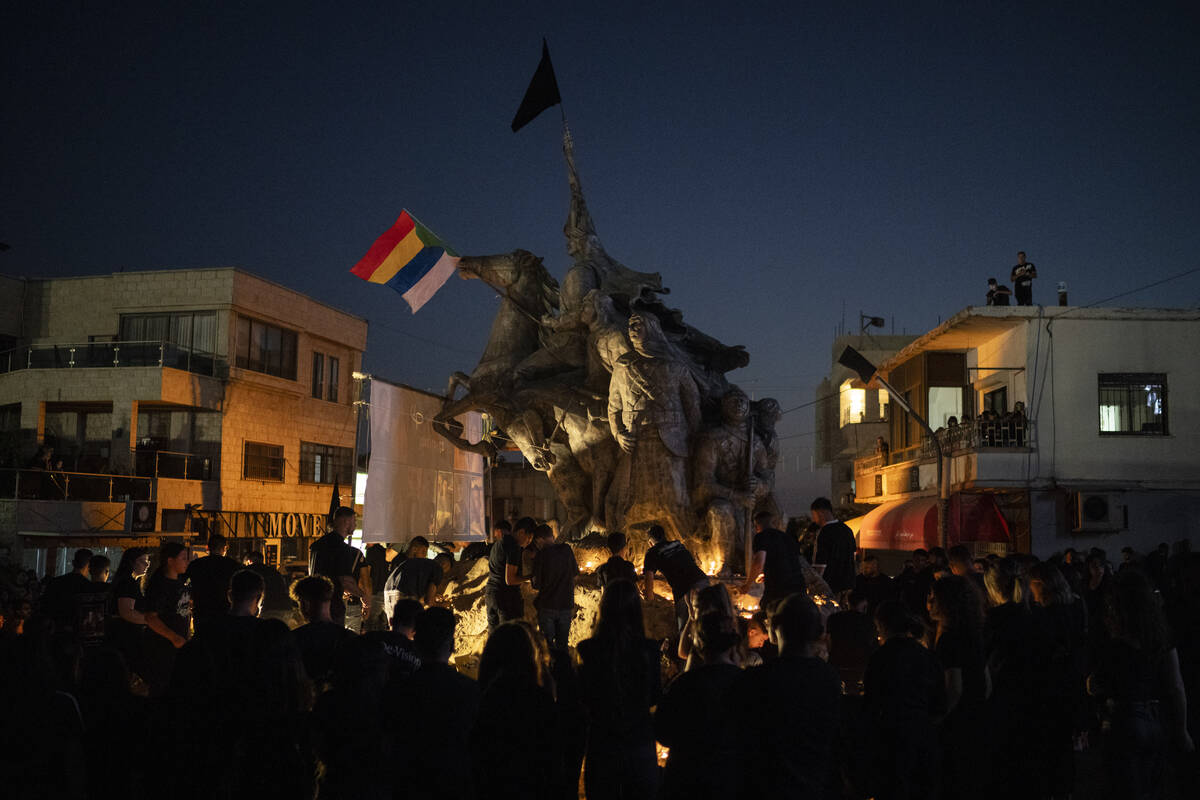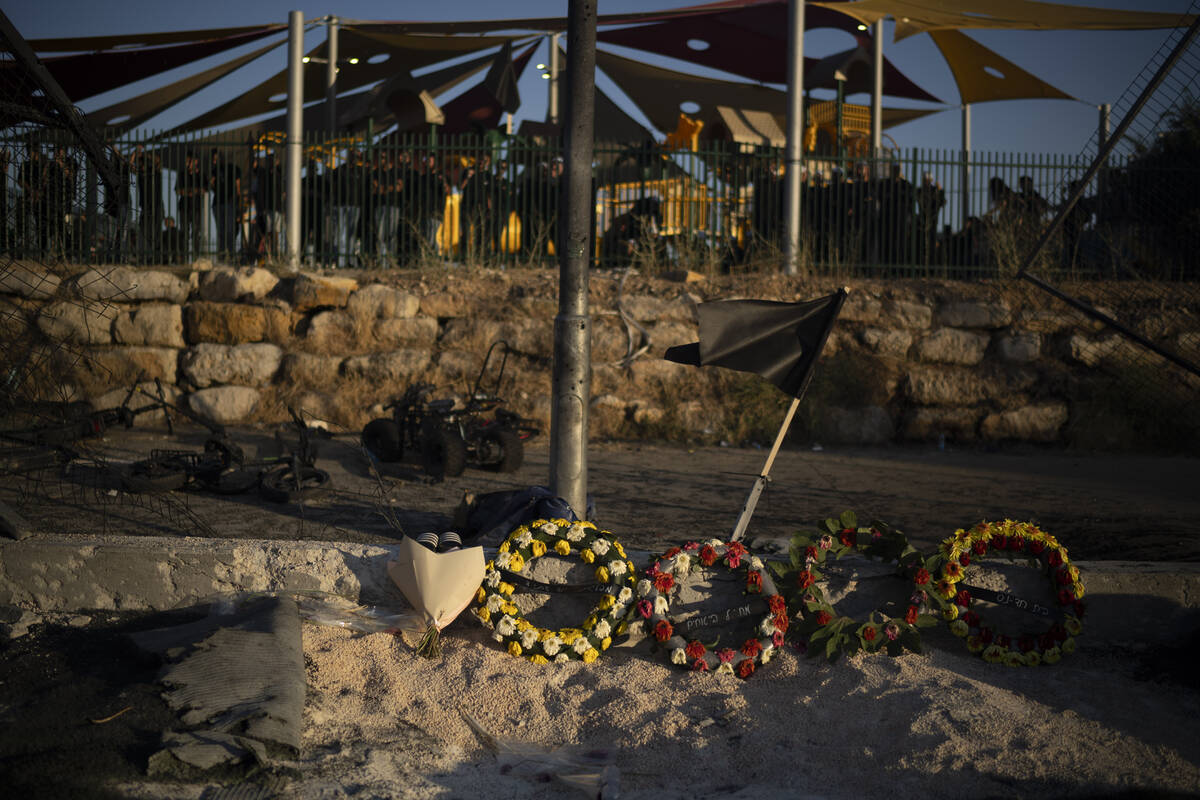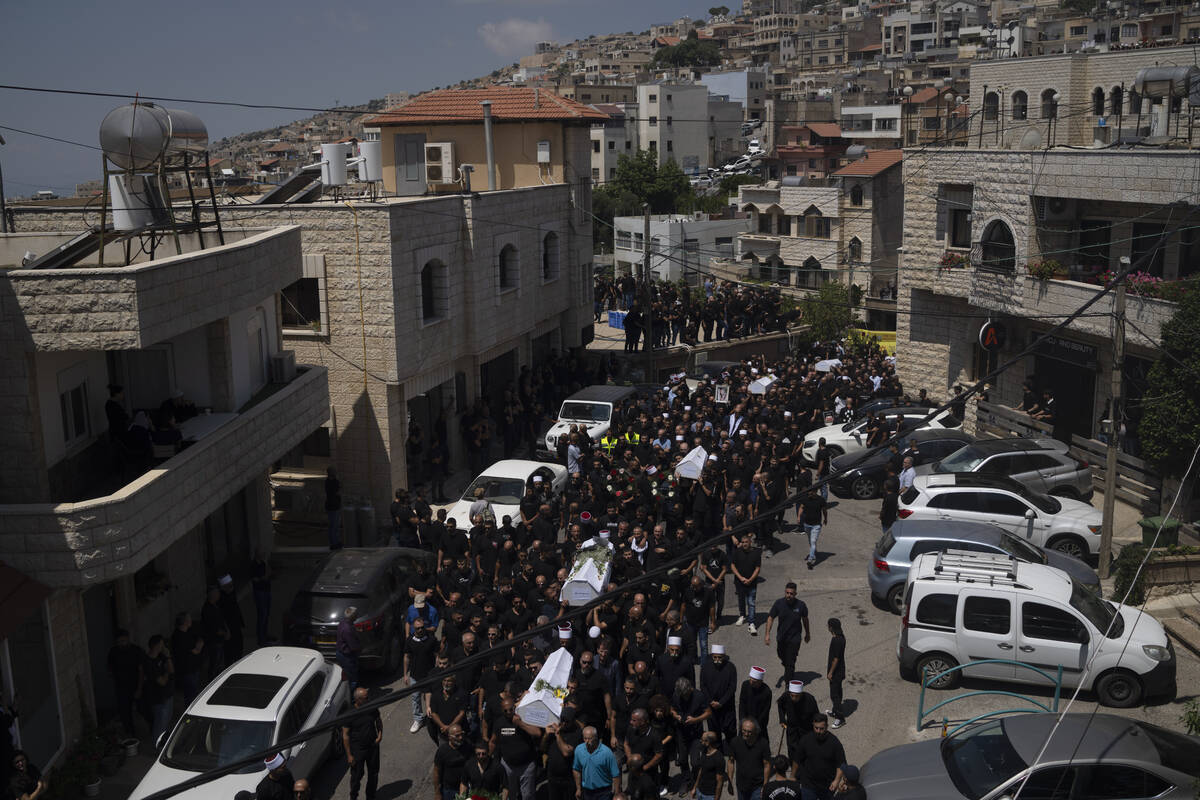Israel weighs response to Hezbollah after a rocket from Lebanon kills 12 youths on a soccer field
TEL AVIV, Israel — The Middle East braced for a potential flare-up in violence on Sunday after Israeli authorities said a rocket from Lebanon struck a soccer field in the Israeli-controlled Golan Heights, killing 12 children and teens in what the military called the deadliest attack on civilians since the Oct. 7 Hamas terrorist attack. It raised fears of a broader regional war between Israel and Hezbollah, which in a rare move denied it was responsible.
The Israeli military said it struck a number of targets inside Lebanon overnight into Sunday, though their intensity was similar to months of cross-border fighting between Israel and the Iranian-backed Hezbollah. Hezbollah said it also carried out strikes. There were no immediate reports of casualties.
The White House National Security Council said it was speaking with Israeli and Lebanese counterparts and working on a diplomatic solution to “end all attacks once and for all” in the border area between Israel and Lebanon.
Saturday’s attack came as Israel and Hamas are negotiating a cease-fire proposal to end the nearly 10-month war in Gaza.
Tragic outcome
On Saturday, a rocket slammed into a soccer field where dozens of children and teens were playing in the Druze town of Majdal Shams, about 7 miles south of Lebanon and next to the Syrian border. Twelve were killed and 20 others wounded, according to the Israeli military.
“I feel darkness inside and out. Nothing like this happened here,” resident Anan Abu Saleh said. On Sunday, the coffins passed through a crowd of thousands. Photos of the youth were displayed at a roundabout as residents lit candles at dusk.
The Israeli military said it was investigating why the rocket wasn’t intercepted and questioned whether it would have been possibly due to its short journey and short reaction time. A bomb shelter was next to the blackened field, steps away.
The Druze are a religious sect that began as an offshoot of Shiite Islam and has communities in Israel, Syria and Lebanon. There are about 25,000 Druze in the Israeli-controlled Golan Heights, according to Yusri Hazran of the Hebrew University.
The Druze are considered among Israel’s most loyal citizens, although those in the Golan Heights have a more fraught relationship with authorities. Israel captured the Golan, a strategic plateau, from Syria in the 1967 Mideast war and annexed it in 1981. Much of the international community considers the area to be occupied territory. While Druze leaders there profess allegiance to Syria, relations with Israel are normally good.
Border battles
Attacks along the Israel-Lebanon border have simmered below the threshold of all-out war since the start of the conflict in Gaza. But the toll and young victims in Saturday’s attack could push Israel to respond more severely.
Israeli Prime Minister Benjamin Netanyahu was weighing options Sunday after hurrying home from the U.S. and warning that Hezbollah “will pay a heavy price for this attack, one that it has not paid so far.” The security Cabinet authorized him and Defense Minister Yoav Gallant to decide how and when to respond.
U.S. Secretary of State Antony Blinken said “every indication” showed the rocket came from Hezbollah, which has been designated a terrorist group by the U.S. The Israeli military’s Chief of Staff Lt. Gen. Herzi Halevi said an Iranian-made Falaq rocket with a 117-pound warhead belonging to Hezbollah was fired.
Hezbollah began firing at Israel the day after Hamas’ terrorist attack on Oct. 7. Israel responded by targeting Hezbollah’s military infrastructure with airstrikes and drones. Most attacks have been confined to border areas, though Israel has assassinated Hezbollah and Hamas leadership farther north in Lebanon. Tens of thousands of people along the border have evacuated.
Since early October, Israeli airstrikes in Lebanon have killed more than 500 people, including around 90 civilians. On the Israeli side, 22 soldiers and 24 civilians have been killed.
Hezbollah has far superior firepower than Hamas. Igniting a war in Israel’s north while it’s engaged in Gaza would overburden the military, Barak Ben-Zur, a researcher at the International Institute of Counter-Terrorism, told journalists.
In Lebanon, some prepared for more fire from Israel. Lebanon’s national airline announced it postponed the Beirut arrival of seven flights until Monday morning, without saying why. Caretaker Prime Minister Najib Mikati had urgent calls with diplomats and politicians, his office said.
“I doubt that there will be a strike, but nothing is far-fetched when it comes to the enemy,” said Abdallah Dalal, a resident of the Lebanese border village of Chebaa. Israeli officials said the rocket was fired nearby.
Any conflict could bring in Iran, which warned Israel that a strong reaction would lead to “unprecedented consequences.” Iran and Israel’s shadow war burst into the open in April, when Iran launched 300 missiles and drones at Israel, most of them intercepted, in response to the killing of an Iranian general.
The United Nations secretary-general called for maximum restraint by all parties.
War in Gaza
Officials from the United States, Egypt and Qatar were meeting Sunday with Israeli officials in Rome in the latest push for a cease-fire deal in Gaza. The head of Israel’s Mossad spy agency, David Barnea, returned home and negotiations will continue in the coming days, Netanyahu’s office said.
An Egyptian official said the attack in the Golan Heights could give urgency to negotiations. “Both fronts are connected,” he said. “A cease-fire in Gaza will lead to a cease-fire with Hezbollah.” The official spoke on condition of anonymity because he wasn’t authorized to discuss the sensitive talks with the media.
In a statement, the Egyptian foreign ministry called on all influential international players to “intervene immediately to spare the peoples of the region further disastrous consequences of the expansion of the conflict.”
























